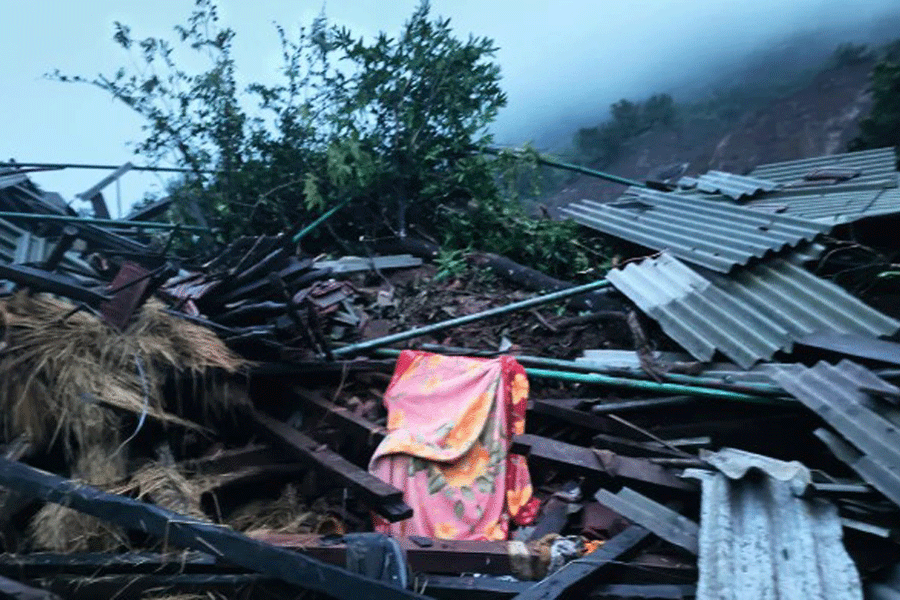A 65-year-old man who lost five members of his family in the landslide at Irshalwadi in Maharashtra's Raigad district, has said it is better they "rest" in the debris rather than the decomposed bodies be pulled out and cause more pain to him.
Nine members of Kamlu Pardhi's family were buried in the landslide that occurred on July 19, with only four managing to survive the tragedy. The four were pulled out by locals and rescue teams.
At least 17 of 48 houses in Irshalwadi, a tribal village located on a hill slope in the coastal district, around 80 km from Mumbai, were fully or partially buried under the landslide debris.
As the village, overlooked by Irshalgad fort, a popular trekking destination, does not have a pucca road, earth movers and excavators could not be easily moved and the search and rescue operation was carried out manually before being called off on Sunday.
Pardhi, a farmer who used to provide home stay service to people coming from Mumbai for trekking at Irshalgad, lost his wife, younger son Kashinath, daughter-in-law, 14-year-old grandson and a 5-year-old granddaughter in the landslide.
"My wife, son, daughter-in-law and two grandchildren are buried there. Their bodies may now have decomposed and one cannot even identify them. It is better they rest there," the distraught man told PTI on Monday.
He was at the foot of the hillock and returning home when he got to know about the landslide.
"I can only imagine what might have happened to the five members of my family who could not be saved. I keep remembering the faces of my two grandchildren, but what can I do. I am helpless. I had so many dreams for them, but it is all over now," he said.
His son Kashinath was a graduate and served as a gram panchayat member who worked in the village during the COVID-19 pandemic, Pardhi said.
"He was a very helpful man and was always available for villagers. As the search and rescue operation was going on, I continued to hope all my family members would be pulled out alive. But it was not to be," he said in a choked voice.
The debris was almost 20 feet high and many of the bodies that were pulled out had started decomposing, and most were identified by kin from their clothes, he said.
"The search and rescue operation was called off after consent was taken from villagers as well as the Adivasi Sanghatana. Let those underneath rest where they are," he said.
The state government has placed them temporarily in containers doubling up as houses, Pardhi said, adding that permanent rehabilitation should be carried out close to the village.
"I have three acres of land but no support," he said.
Sachin Mate, chief of the Raigad unit of the Agari Sena and former village sarpanch who was involved in the rescue operation immediately after the disaster struck, also said rehabilitation must be done as quickly as possible.
On Sunday, the National Disaster Response Force (NDRF) called off the search and rescue operation after managing to recover 27 bodies from the rubble.
The rescue operation, which started some time after disaster struck, was carried out manually with the help of volunteers and sniffer dogs as the village is at least an hour away from the nearest motorable road.
State minister Uday Samant told reporters on Sunday that 57 people were missing, while 144 of the 228 people who were staying in Irshalwadi at the time of the incident were lodged in a nearby temple.
Except for the headline, this story has not been edited by The Telegraph Online staff and has been published from a syndicated feed.











